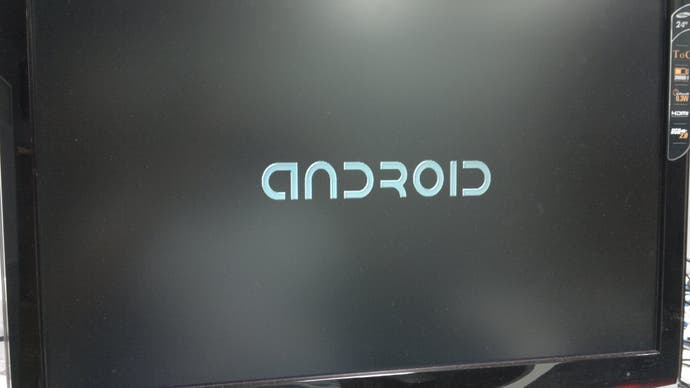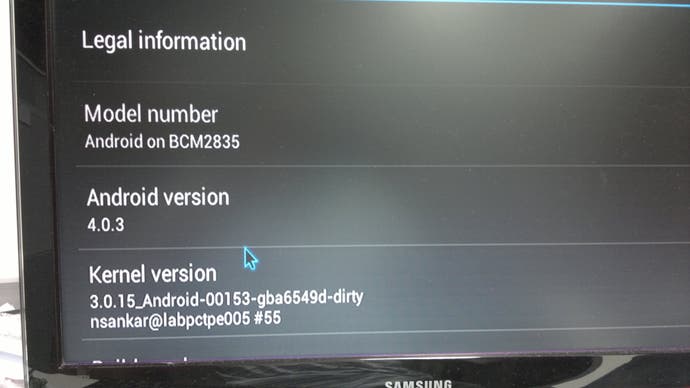Android 4.0 coming to Raspberry Pi
Ice Cream Sandwich arrives next month.
Android 4.0 is coming to the Raspberry Pi, giving the ultra-cheap credit-card sized computer a powerful, easy-to-use alternative to the current Linux distribution recommended for use with the system. The news was revealed last night by project director Eben Upton, writing on the Raspberry Pi blog.
The port has been in progress for some time, with the Raspberry Pi foundation confirming that graphics and video acceleration have been fully implemented - which should hopefully allow for Android games and apps to make use of the powerful GPU at the heart of the device. According to the developer, all that is missing from the OS as it stands right now is support for the AudioFlinger sub-system, which explains why there is no sound in the demonstration video we've embedded below.
Previous attempts to bring various flavours of Android to the Raspi haven't been particularly successful - the 4.0 port boots, but has been deemed "unusable", while the 2.3 variant only gets a slightly higher "barely usable" ranking. Conversely, the video appears to demonstrate Ice Cream Sandwich working quite nicely indeed, particularly in how it handles media playback functions.


Overall impressions are promising, even though other crucial elements of the OS don't get much of a look-in during the demo - we're particularly interested in seeing how well the browser performs overall bearing in mind how slow the experience is on the Linux distribution.
Based on our experiences with other Android 4.0 devices, general OS navigation does appear to be noticeably slower, but it's worth remembering that the Pi only has a single, older ARM core clocked at just 700MHz - it's not really in the same class as current smartphones in this regard. However, playback both from the YouTube app (running in HD no less) and the media player looks flawless - as you would expect from a Broadcom chipset designed to decode Blu-ray quality video.
The Android 4.0 port is in the final stages of development and according to the Foundation's Liz Upton, a release candidate should be available to download and try out on your Pi in around a month's time. In response to developers looking to tinker with the existing build in the here and now, Eben Upton added that a version will be released "once we have something we're happy shows off the Pi's capabilities in the best light".
We'll be taking another look at the Raspberry Pi once the Android port has been released, and also testing the latest "Raspian" Linux distribution, a version of the OS revised to take advantage of the Pi's specific hardware.

